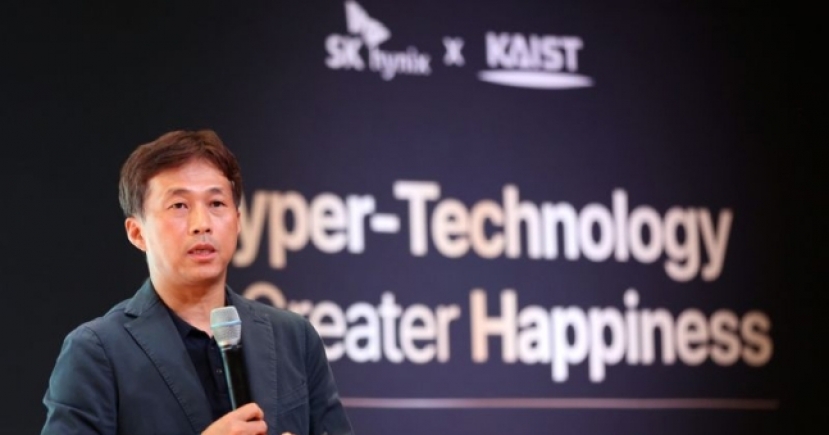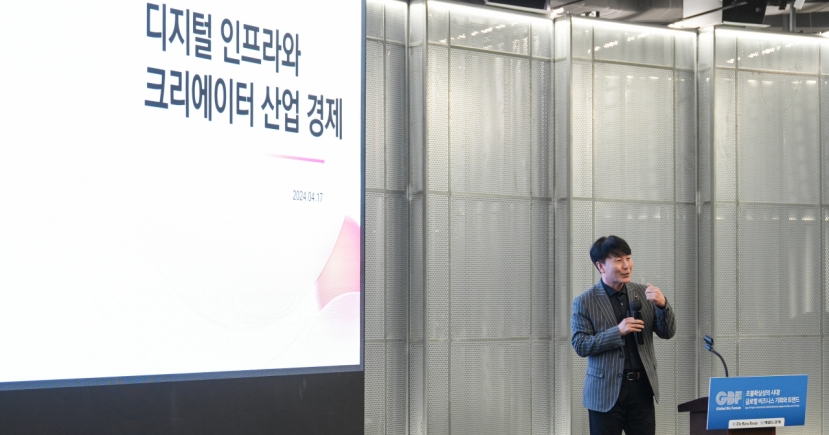Startups
[INTERVIEW] How blockchain can disrupt Hollywood
[THE INVESTOR] For over three decades, renowned Hollywood film producer Teddy Zee’s career has consisted of surviving and thriving in the film industry, rocked by technological disruption.
From VHS to DVD and now online streaming, Zee rolled out box office hits like “Pursuit of Happiness,” “Hitch” and “Charlie’s Angels,” to name a few.
Now, the 61-year-old Chinese-American film producer believes blockchain is the next game-changer. It will shake the whole entertainment industry from film to TV and music.
“Blockchain really reminds me of the time when the internet was born, where you knew my world is going to change,” Zee told The Investor in an interview last week during the SparkLabs Demoday in Seoul. He serves as a mentor for the Seoul-based startup accelerator. “You cannot stop the change. You can either ride along or be left behind.”
He believes the decentralized ledger will bring transparency in the entertainment industry that has been suffering from trust problems in the ecosystem composed of multiple players.
 |
Teddy Zee speaks during an interview during the SparkLabs Demoday in Seoul. SparkLabs |
“When Hollywood deals with distributors from all over the world, how do you trust them? How do you know someone is not stealing? Blockchain offers transparency. Every time somebody watches your content, it’s on the blockchain, so there is complete transparency,” he said.
The blockchain technology, utilizing smart contracts and decentralized platform, will disrupt the music industry as well, he added. It will cut out the industry middlemen and gatekeepers who have racked up fortunes on fees, while protecting the rights of creators.
“Imagine if the artists can have a direct relationship on the blockchain with customers and fans. The money goes directly to the person with copyright,” he said. “That’s what empowers the little guys. It’s the democratization. Technology democratizes everything.”
Blockchain is not only a boon for artists, but for Hollywood studios that have paid huge commissions -- ranging from 30 to 70 percent -- to big distributors like local theater franchises, Apple, Amazon, YouTube, Google and Hulu, he added.
Recognizing the grand potential for blockchain, Zee notes that blockchain startups could become the next big thing.
Seoul-based video streaming provider Watcha is one of them.
Dubbed Korean Netflix, Watcha is developing its own blockchain platform called Contents Protocol, that aims to better copyright distribution for all parties on its existing services that ranges from film, TV shows to music, webtoons and e-books.
Using its own token called CPT -- which will be issued next month -- Contents Protocol allows royalties and fees to be shared fairly and transparently among content creators and users.
He is upbeat on Watcha’s prospects, as it has already established users on the platform, which boasts 3.8 million users since launch in 2011.
“There are many great blockchain ideas out there. But there aren’t many that already have customers, have a relationship with content providers, and who have a tech team and customer service in place, trusted by users and partners,” he said.
When Zee gets involved with blockchain startups, he looks at many criteria. They are scalability, having real users and engagement, profits and revenue, team, and real use case of blockchain technology, among others. “Are they credible in the industry they are trying to provide solutions for? Is their business model credible?”
His wide-ranging interests include Korean contents as well. Zee, expressing his penchant for local dramas, is working to bring more Korean content to US viewers, emphasizing the strength of domestic storytelling.
He recently clinched a deal with KBS America and Jim Figueroa, founder and CEO of Koryo Pop, drama production firm, to bring KBS dramas to the US. Under the agreement, they will go through the library of dramas created by KBS and find the ones that will have the best chance of success, by connecting contents with actors, producers, production companies and network. It hopes to duplicate the success of ABC medical drama “The Good Doctor,” a US remake of the KBS drama of the same title that achieved rare success in the country.
“It’s about selecting the right titles that we think will be best adapted. Hollywood is really hungry for great stories and great characters.”
Leveraging his Hollywood career -- which includes Paramount Pictures and Columbia Pictures -- Zee’s main interest is bringing new talent to the fore. He has been advising many firms, including AI startup Oben, children content firm SmartStudy, known for character Pinkfong, and Chinese photo editing app Meitu, among others.
“I love highlighting firms, films and people who can inspire generations,” he said. “I enjoyed filmmaking. But a film can take over five years from birth (to release), and then the life of a film is just three months. If I spend 18 months on a startup, help them launch, that business could give fruit and impact for years and years.”
“I found it’s more powerful to support the vision of founders, young companies or underdog firms to help them achieve their full potential.”
By Ahn Sung-mi (sahn@heraldcorp.com)








